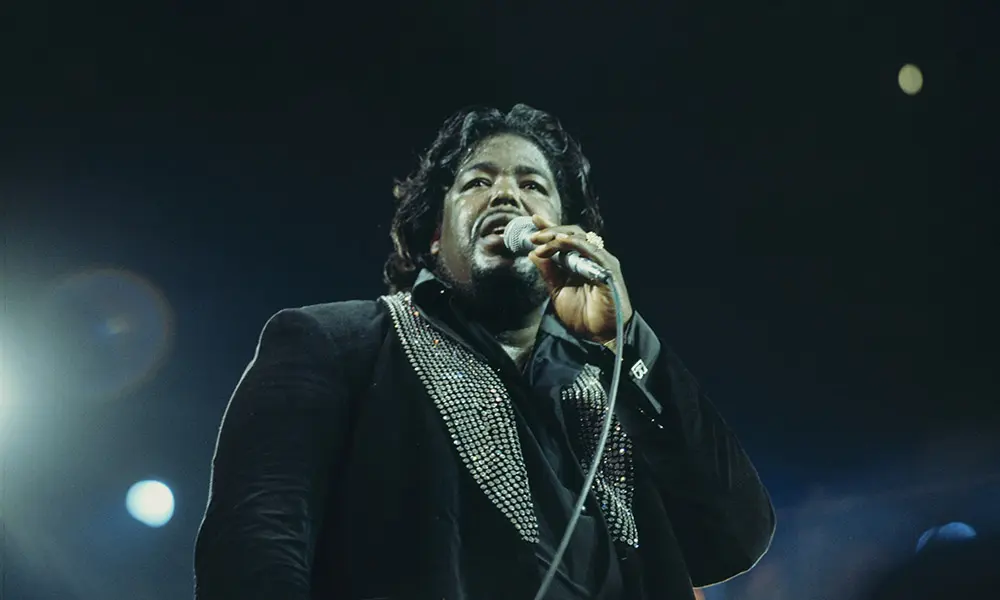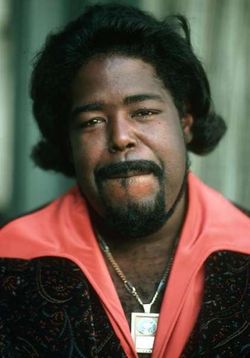Clive Davis ADMITS Barry White D*ED For REFUSING To Sell His Soul!? | HO
When you think of unforgettable voices, Barry White’s deep, rich tone instantly comes to mind. Known for iconic tracks like “Can’t Get Enough of Your Love, Babe” and “You’re the First, The Last, My Everything,” Barry White wasn’t just a music legend—he was the voice of love. But there’s much more to his story than just his hits. What truly set Barry White apart wasn’t just his remarkable voice, but also his fearless personality and his lasting legacy as the ultimate romantic songwriter. He wasn’t just about love songs; he was also a fierce critic of the music industry and the societal issues of his time.
You’ve probably heard all about his music, but did you know Barry White was outspoken about the injustices he saw in the industry? He wasn’t afraid to send out bold messages that likely didn’t sit well with the Hollywood elite. So, what drove Barry White to take on the music industry? Was it his desire to make a difference? And what challenges did he face as a Black man navigating the complex world of music in those days?

The music industry is no stranger to controversies and whispers about behind-the-scenes dealings, especially when it comes to its most iconic figures. Among the many legends who have shaped the soundscape of music, Barry White, the “Maestro of Love,” stands out not just for his unparalleled talent but also for his steadfast refusal to compromise his principles. Recently, rumors have resurfaced alleging that Clive Davis, a music industry mogul, hinted that Barry White’s untimely death might have stemmed from his refusal to “sell his soul” — a term often used to describe sacrificing integrity for fame or fortune.
Barry White was more than just a voice. Known for his lush orchestral compositions and baritone that exuded romance, White’s career spanned decades, earning him multiple platinum albums and an indelible mark on the music world. However, what truly set him apart was his unwavering commitment to staying true to himself and his art.
From his humble beginnings in the Watts neighborhood of Los Angeles to becoming a global icon, Barry White’s journey was marked by a series of conscious decisions to prioritize authenticity over commercialism. Unlike many artists of his era, White maintained creative control over his work, a choice that often clashed with industry expectations. His dedication to his principles extended beyond music, as he used his platform to mentor youth and speak out against societal injustices.
Clive Davis, a towering figure in the music industry, is renowned for discovering and nurturing some of the biggest names in music, from Whitney Houston to Alicia Keys. However, Davis’s name has also been linked to controversies surrounding the pressures artists face in the industry. The idea that Davis might have indirectly admitted Barry White faced repercussions for refusing to conform to certain industry norms has sparked heated debates.
Some interpret Davis’s remarks about Barry White’s career struggles and eventual decline in health as coded acknowledgments of the darker side of the music industry. Allegedly, White’s refusal to adhere to the pressures of commercialism or align with the powerful elite within the industry may have made him a target.

The phrase “selling one’s soul” often conjures up dramatic imagery, but in the context of the music industry, it generally refers to compromising personal values for success. Barry White’s defiance of this expectation was evident throughout his career:
Independence
-
- : Barry White consistently prioritized creative freedom, refusing to let record labels dictate his music. Unlike many artists, he was deeply involved in every aspect of his productions, from songwriting to arranging.
Social Advocacy
-
- : White didn’t shy away from addressing societal issues. His music often carried messages of love, unity, and resilience, which contrasted with the more market-driven themes of his contemporaries.
Financial Integrity
-
- : White’s handling of his finances reflected his refusal to be exploited. He once famously stated, “Money doesn’t spend me, I spend money,” signaling his commitment to maintaining control over his earnings.
Mentorship
- : Rather than solely focusing on his success, White invested in the next generation, using his experiences to guide young artists toward ethical and informed decisions.
Barry White passed away on July 4, 2003, due to complications from kidney failure, a condition exacerbated by hypertension. While his death was officially attributed to health issues, the resurfacing of allegations suggests there may have been external pressures that contributed to the stress and decline of his health. Proponents of this theory argue that the relentless demands of the industry and his refusal to conform to its darker aspects created an environment that took a toll on his well-being.
The allegations involving Clive Davis and Barry White’s death highlight a broader conversation about the exploitation and pressures within the music industry. Many artists have spoken out about the immense mental, physical, and emotional toll of navigating an industry that often prioritizes profit over humanity. Figures like Prince, Michael Jackson, and Whitney Houston have all raised similar concerns, further fueling speculation about systemic issues.
For Barry White, his legacy serves as a powerful reminder of the importance of staying true to one’s values. Despite facing challenges, his music continues to inspire millions, proving that integrity can outlast fleeting fame.
